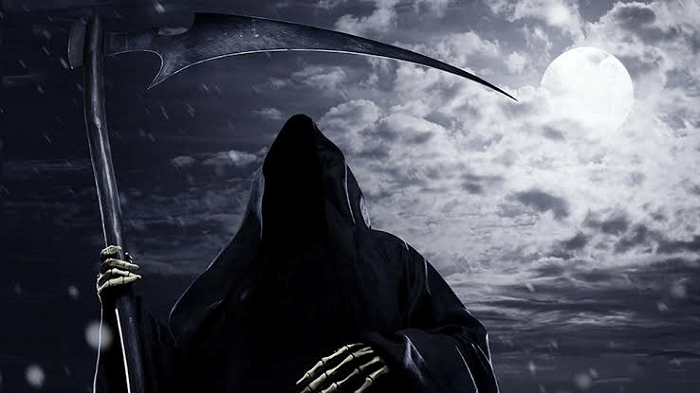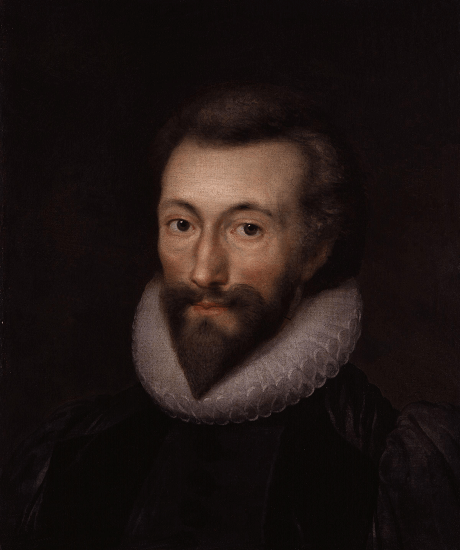Death Be Not Proud SummaryJohn Donne (1572-1631), an English poet and one of the most prominent members of the school of metaphysical poets in seventeenth-century literature, wrote a fourteen-line poem, or sonnet, titled "Sonnet X," also known by its first line, "Death Be Not Proud." The first posthumous edition of it appeared in 1633 and was written between February and August of 1609. It is one of the nineteen sonnets that make up Donne's Holy Sonnets or Divine Meditations, which are among his most well-known compositions. The Westmoreland Manuscript (c. 1620), the most complete arrangement of the cycle, which was discovered in the late nineteenth century, follows the order of the poems in the Westmoreland Manuscript, and most editions position the piece as the tenth in the sonnet series. But in two versions that were released soon after Donne's passing, the sonnets are presented in a different order, and this piece is listed as the eleventh sonnet in Songs and Sonnets (1633) and sixth in Divine Meditations (1635), respectively. 
An argument against death's authority is made in the song "Death Be Not Proud." The speaker cautions Death against taking confidence in his power while addressing Death as a person. Such power is simply an illusion, and the relief from the weariness of the world that Death thinks it offers to men and women is really just rest for its purported "victims." Death is criticized by the poet for being a victim of other powers, such as chance, monarchs, and persons in need. Since a number of other powers have the ability to take life at will, death is not in control. Death is inferior to drugs even when it comes to the rest it gives. With the words "Death, thou shalt die," the speaker finally foretells Death's own demise. In his ninth year as an Anglican pastor, Donne suffered from a serious sickness that put him in danger of passing away. Typhoid fever may have been the sickness, but new research has proven that it's possible he also had other ailments in addition to relapsing fever. The sonnet uses the rhyme pattern ABBA ABBA CDDC EE (the word "eternalLY" is meant to rhyme with "DIE"). The final phrase references to 1 Corinthians 15:26, which states that death is the final enemy to be vanquished. The poem's first line is echoed in a later verse, "Death be not proud, thy hand gave not this blow," which is sometimes credited to Donne but was really written by his patron, Lucy Harington Russell, Countess of Bedford. About the Poet
English poet, scholar, soldier, and Secretary John Donne was born into a recusant family and died on March 31, 1631. He eventually joined the Church of England as a cleric. He was appointed Dean of London's St. Paul's Cathedral (1621-1631) with the support of the monarch. He is regarded as the foremost exponent of the poets who write about metaphysics. In addition to sonnets, love poems, religious poetry, Latin translations, epigrams, elegies, songs, and satires, his poetical works are renowned for their figurative and sensual style. Additionally, well known are his sermons. In the years when practising Roman Catholicism was forbidden in England, Donne was born in London in 1571 or 1572 to a family of agnostics. In a family of six kids, Donne was the third. Elizabeth Heywood was the wife of his father, who had the same name. He was a City of London ironmongers company warden and of Welsh ancestry. Out of concern for religious persecution, he shied away from unwanted government scrutiny. Donne's mother, Elizabeth, was left to raise the children by herself after his father passed away in 1576 when he was four years old. She was the sister of the Reverend Jasper Heywood, a Jesuit priest and translator, and the daughter of dramatist John Heywood, who was also a recusant Roman Catholic. Thomas More's great-niece was her. Donne's mother married affluent widower Dr. John Syminges, who had three children of his own, a few months after her husband's passing. Early Donne poems demonstrated a thorough understanding of English society together with scathing criticism of its issues. His satires addressed popular Elizabethan subjects like mediocre poets, crooked judges, and haughty courtiers. His depictions of disease, puke, excrement, and epidemic expressed his sharply satirical perspective of a society made up primarily of fools and knaves. However, the subject of real religion is the focus of his third satire, which is very important to Donne. The erotic poetry that Donne wrote in the early years of his career is particularly noteworthy. This is especially true of his elegies, where he often used strange metaphors, like comparing sex to a flea biting two lovers. Despite being widely distributed in manuscript form, Donne did not publish these poems. One of them was discovered at Melford Hall in November 2018?a previously undiscovered manuscript that is thought to be one of the largest contemporary collections of Donne's writings (among others). Summary Of PoemStanza - 1Death, be not proud? canst thou kill me. The poet claims in these lines that Death is neither terrifying nor strong. The soul of a person is unaffected by it. So, death shouldn't take pride in its might. The soul is not within its control. Thus, it shouldn't be arrogant about itself. The poet compares death to dozing off. The sonnet's first lines are as follows. The poem's introduction is quite rhetorical and declarative. The poet personifies death in this passage. He claims that one should not take pride in dying. Although some individuals have described it as fearsome and powerful, this is not the case. Death does not genuinely take the lives of those it believes it has claimed. Their souls acquire eternal life. The poet is not capable of being killed by death. Therefore, the soul is unaffected by death and has no control over it. Donne views death as a weak, rather than a powerful, entity. The poet expresses sympathy for death by referring to it as "poor" due to its helplessness and vulnerablity. Stanza - 2From rest and sleep?soul's delivery. The poet asserts in this stanza that dying is not a terrifying thought. In an effort to support his claim, the poet tries to explain it to us. If resting and sleeping, which are simply copies or poor imitations of death, give us joy, then death itself, which is the true thing, must give us far more pleasure. The poet also claims that those whom God loves the greatest are the ones who pass away young. Only a person's physical body can be killed by death; the spirit is not affected. Souls become liberated and everlasting after death, while bones rest. Our bodies and souls are truly relieved by death. The soul, which was previously imprisoned in our body, is literally born as a result of it. So, dying is not a dreadful or terrifying thing. Stanza - 3Thou art slave...death, thou shalt die. The poet argues in these lines that since death has no control over the soul, people should not be afraid of it. We enjoy a great deal of pleasure from sleep and relaxation, which are really images and pictures of death. The sonnet ends with these words. The poet scorns the widespread notion that death has all-power in these lines. In reality, fate, chance, evil kings, and bad people have influence over death, making it their hostage or slave. We can fall asleep using opium and other medicines just as well as when we die. Our sleep is actually improved by them. Death needs the assistance of poison, war, and illness in order to demonstrate its effectiveness in the company death lives; death is unable to function at its own level. Death is but a brief sleep that the soul will awaken from to continue living forever. In addition, the soul triumphs over death. Because death has no influence over a person's soul, it is death itself that passes away. Donne declares the futility of death and in some ways denigrates death. ConclusionIn Donne's collection of poems called Holy Sonnets, "Death Be Not Proud" is the tenth sonnet. Donne is an example of a Renaissance author who produced love and religious poetry that shocks the reader into paying attention with its wit, pretensions, and fantastical imagery. The poet's great religious commitment is evident in this poem. All devout Christians hold the idea of soul immortality. Donne, who has a strong religious conviction, also asserts that death has no control over the soul. Only our bodies are capable of death. The soul gains immortality after death and awakens in heaven every morning for all eternity. As opposed to this, death is defeated by the soul. Death is not a powerful thing in Donne's eyes; rather, it is a pitiful thing. The poet expresses sympathy for death by labelling it "poor," highlighting its helplessness and vulnerablity. Death is neither terrifying nor strong, according to him. Only a type of relaxation and sleep, much more pleasurable than life, is death. Once more, the poet labels death as being the slave of fate, chance, monarchs, and evil people. It surrounds itself with disease, venom, and other poisons. It is unable to function at its own level; in order to kill someone, it must enlist the aid of one of its agents, such as poison, war, or fate. In other words, it isn't autonomous. It should not take pride in killing someone because it is helpless to do so. In actuality, the death is the one who passes away. This poem demonstrates Donne's intensely religious character as he denigrates death and joyfully proclaims the futility of death.
Next TopicDream Children Summary
|
 For Videos Join Our Youtube Channel: Join Now
For Videos Join Our Youtube Channel: Join Now
Feedback
- Send your Feedback to [email protected]
Help Others, Please Share









